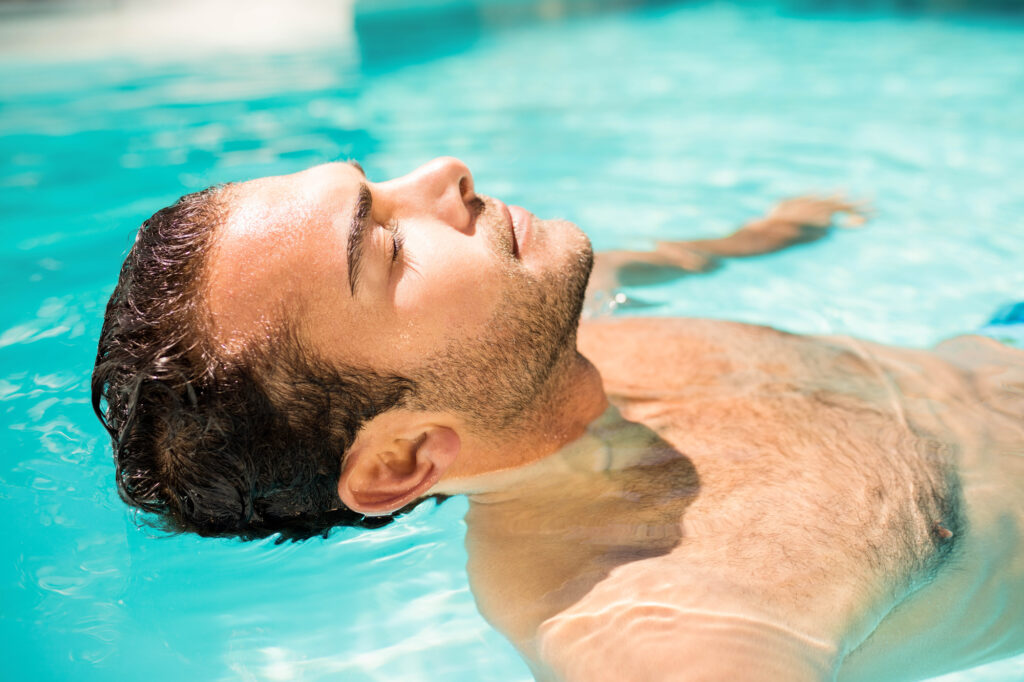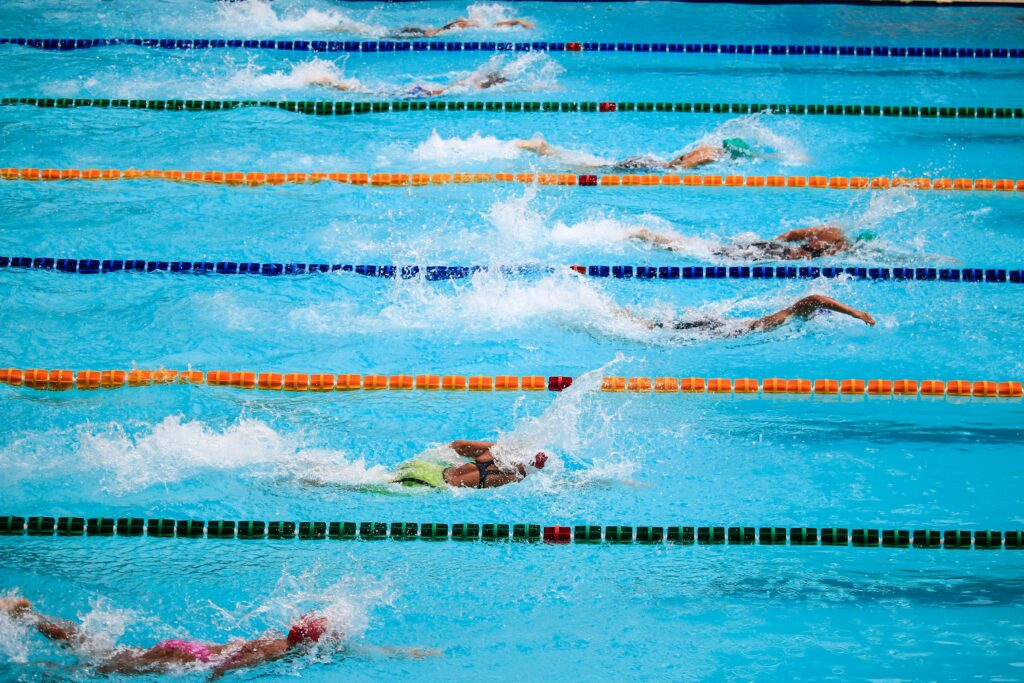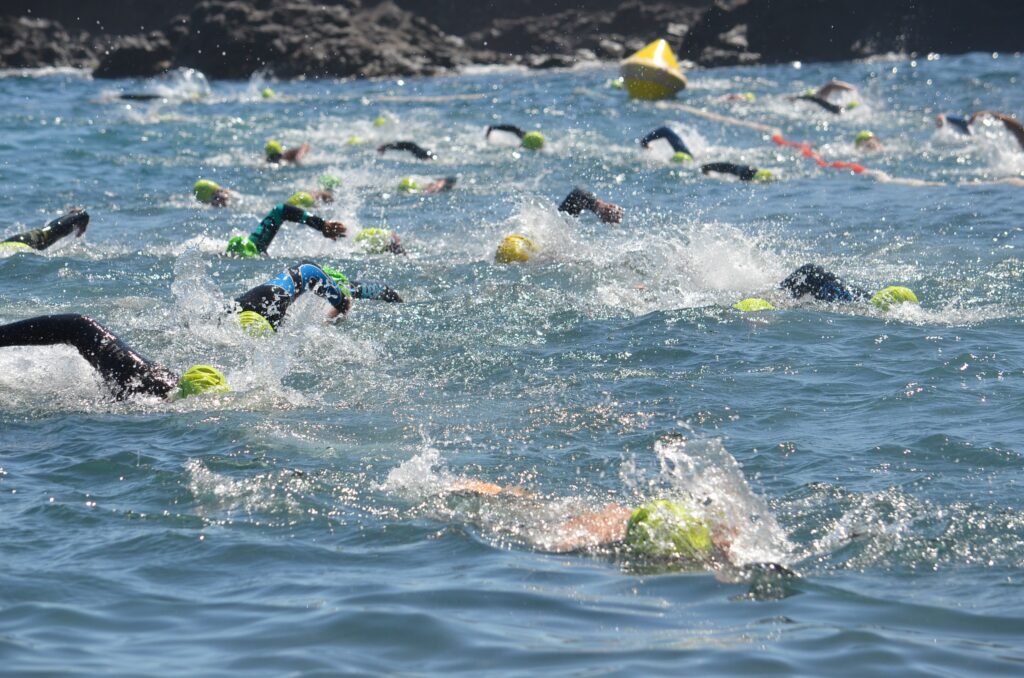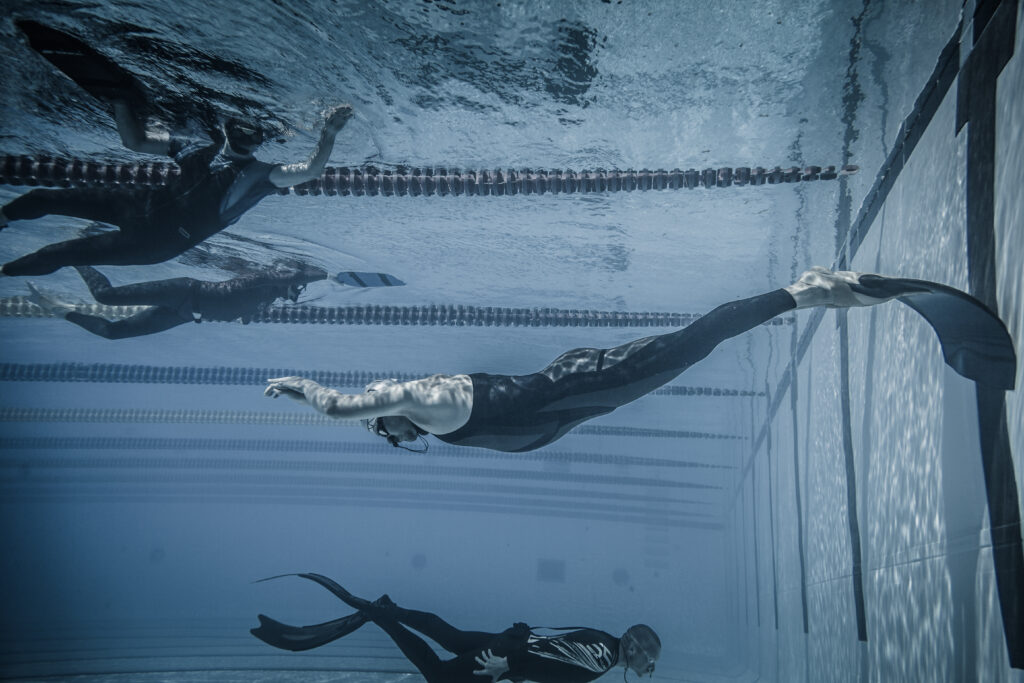Rest and recovery are essential components of any swimmer’s training routine. Whether you are a professional athlete or a recreational swimmer, taking time to rest and recover can help you perform at your best and avoid injury. In this article, we will explore the science behind rest and recovery, the physical and psychological benefits of incorporating rest and recovery into your training routine, and some techniques you can use to recover effectively.
The science behind rest and recovery is clear: when we exercise, we create small tears in our muscles. These tears need time to heal and repair, and this process is what makes our muscles stronger. However, if we don’t give our muscles enough time to recover, we can experience overuse injuries, such as tendinitis or stress fractures. Additionally, rest and recovery can help us avoid burnout and mental fatigue, which can negatively impact our performance.
Key Takeaways
- Rest and recovery are essential components of any swimmer’s training routine.
- Incorporating rest and recovery into your training routine can help you avoid injury and perform at your best.
- Techniques such as stretching, foam rolling, and massage can help you recover effectively.
The Science Behind Rest and Recovery
Rest and recovery are essential components of any training programme, especially for swimmers. During exercise, our body undergoes a process of breakdown and recovery. Rest and recovery help our body to repair and regenerate, which is essential for optimal performance. In this section, we’ll explore the science behind rest and recovery and why it’s crucial for swimmers.
Muscle Recovery
Swimming is a physically demanding sport that requires a lot of energy. When we swim, our muscles undergo a process of breakdown, which is known as catabolism. This process is necessary for muscle growth and adaptation. However, it’s important to note that muscle growth and adaptation occur during the recovery phase, which is known as anabolism.
Energy Systems
Swimming requires the use of various energy systems, including the aerobic and anaerobic systems. The aerobic system is responsible for providing energy during low-intensity exercise, while the anaerobic system provides energy during high-intensity exercise. Both systems require adequate rest and recovery to function optimally.
Hormonal Balance
Rest and recovery also play a crucial role in maintaining hormonal balance. During exercise, our body releases hormones such as cortisol and adrenaline, which help to provide energy and increase focus. However, prolonged exercise and inadequate rest can lead to an imbalance in these hormones, which can negatively impact our health and performance.
Sleep
Sleep is an essential component of rest and recovery. It’s during sleep that our body repairs and regenerates. Inadequate sleep can lead to a decrease in performance, increased risk of injury, and negatively impact our overall health.
In conclusion, rest and recovery are essential components of any training programme, especially for swimmers. It’s during rest and recovery that our body repairs and regenerates, which is essential for optimal performance. By understanding the science behind rest and recovery, we can ensure that we’re giving our body the time and resources it needs to function at its best.

Physical Benefits of Rest and Recovery for Swimmers
Rest and recovery are essential components of any training program, especially for swimmers. Here are some of the physical benefits of rest and recovery for swimmers:
Reduced Risk of Injury
Rest and recovery play a crucial role in reducing the risk of injury for swimmers. Swimming is a physically demanding sport that places a lot of stress on the body, especially the shoulders, back, and knees. Taking time off from training allows the body to repair and rebuild itself, reducing the risk of injury and overuse.
Improved Muscle Repair and Growth
Rest and recovery are crucial for muscle repair and growth. When we swim, we create tiny tears in our muscle fibres. These tears are necessary for muscle growth, but they need time to heal. Rest and recovery provide the body with the time it needs to repair these tears and rebuild stronger, more resilient muscles.
Increased Energy and Endurance
Rest and recovery help to increase energy and endurance levels. When we swim, we use up a lot of energy, and our bodies need time to replenish that energy. Taking time off from training allows the body to recover and recharge, leading to increased energy and endurance levels.
Improved Performance
Rest and recovery are essential for improving performance. When we train, our bodies go through a process of stress and recovery. Without adequate recovery time, our bodies can become over-stressed, leading to decreased performance. Rest and recovery help to ensure that our bodies are fully recovered and ready to perform at their best.
In conclusion, rest and recovery are essential components of any training program, especially for swimmers. They play a crucial role in reducing the risk of injury, improving muscle repair and growth, increasing energy and endurance levels, and improving performance. As swimmers, we must prioritize rest and recovery to ensure that we stay healthy, strong, and ready to perform at our best.
Psychological Benefits of Rest and Recovery
Rest and recovery are not only essential for physical health but also for psychological well-being. In swimming, it is crucial to take time off to rest and recover to avoid burnout and mental exhaustion. Here are some of the psychological benefits of rest and recovery for swimmers:
Reduced Stress and Anxiety
Swimming is a physically demanding sport that requires a lot of mental and emotional energy. Rest and recovery allow us to reduce stress and anxiety levels, which can be detrimental to our performance. Taking time off from training and competition can help us relax and recharge, which can lead to improved mental health.
Improved Mood
Swimming is known to release endorphins, which are natural mood boosters. However, overtraining and fatigue can lead to a decrease in endorphin levels, which can affect our mood negatively. Rest and recovery can help us restore our endorphin levels, leading to improved mood and a more positive outlook.
Enhanced Mental Clarity
Swimming requires a lot of mental focus and concentration. Overtraining and fatigue can lead to mental exhaustion, which can affect our ability to think clearly and make sound decisions. Rest and recovery can help us clear our minds and enhance our mental clarity, leading to improved performance in the pool.
Improved Sleep
Rest and recovery are essential for quality sleep, which is crucial for physical and mental health. Swimming can be physically and mentally exhausting, making it difficult to get a good night’s sleep. Taking time off to rest and recover can help us improve our sleep quality, leading to improved physical and mental health.
In conclusion, rest and recovery are crucial for psychological well-being in swimming. Taking time off to rest and recharge can lead to reduced stress and anxiety levels, improved mood, enhanced mental clarity, and improved sleep quality. As swimmers, we must prioritize rest and recovery to achieve optimal physical and mental health.
Rest and Recovery Techniques for Swimmers
As swimmers, we know that rest and recovery are essential for optimal performance. Here are some techniques we can use to aid our recovery:
Active Recovery
Active recovery involves low-intensity exercise that increases blood flow to the muscles, helping to remove waste products such as lactic acid. Examples of active recovery include light swimming, cycling, or jogging. Active recovery can also help to reduce muscle soreness and stiffness.
Passive Recovery
Passive recovery involves rest and relaxation. Examples of passive recovery include stretching, massage, and foam rolling. These techniques can help to reduce muscle tension and improve flexibility. Taking a hot bath or using a sauna can also aid in relaxation and recovery.
Sleep
Sleep is crucial for recovery. During sleep, our bodies repair and regenerate tissues, including muscle tissue. Getting enough sleep is essential for optimal performance. Adults should aim for 7-9 hours of sleep per night.
It’s important to note that recovery techniques should be used in conjunction with each other and not in isolation. For example, after a hard training session, we could use active recovery techniques such as light swimming, followed by passive recovery techniques such as stretching or foam rolling, and then ensure we get enough sleep.
By incorporating these rest and recovery techniques into our training programme, we can help to reduce the risk of injury, improve performance, and achieve our goals.

Importance of Nutrition in Rest and Recovery
When it comes to rest and recovery, nutrition plays a crucial role in aiding the body’s natural healing process. Proper nutrition can help reduce inflammation, repair damaged tissue, and replenish energy stores. In this section, we will discuss the importance of hydration and protein intake in rest and recovery.
Hydration
Staying hydrated is essential for optimal recovery. Water is essential for maintaining blood volume, regulating body temperature, and transporting nutrients to the cells. During exercise, we lose water through sweat, and if we do not replace it, we risk dehydration, which can lead to fatigue, muscle cramps, and impaired performance.
To ensure adequate hydration during rest and recovery, we recommend drinking at least 2 litres of water per day. If you are an athlete or have been sweating excessively, you may need to drink more to replace lost fluids. You can also consume other hydrating fluids, such as coconut water, herbal tea, or diluted fruit juice.
Protein Intake
Protein is essential for repairing and rebuilding muscle tissue after exercise. During rest and recovery, the body uses protein to repair damaged muscle fibres, which helps to reduce inflammation and soreness. Protein also helps to replenish energy stores and supports the immune system.
To ensure adequate protein intake during rest and recovery, we recommend consuming 1.2-1.6 grams of protein per kilogram of body weight per day. Good sources of protein include lean meat, fish, eggs, dairy, and plant-based sources such as beans, lentils, and tofu.
In conclusion, proper nutrition is essential for rest and recovery. Adequate hydration and protein intake can help reduce inflammation, repair damaged tissue, and replenish energy stores, which can aid the body’s natural healing process.
Common Mistakes in Rest and Recovery
When it comes to rest and recovery, there are many common mistakes that swimmers make. Here are a few of the most common mistakes that we should avoid:
Not Prioritising Recovery
One of the biggest mistakes that swimmers make is not prioritising recovery. We often focus on training hard and pushing ourselves to the limit, but we forget that recovery is just as important as training. We need to make sure that we are giving our bodies enough time to rest and recover between training sessions, and that we are taking care of our bodies by eating well, getting enough sleep, and staying hydrated.
Ignoring Warning Signs
Another common mistake is ignoring warning signs from our bodies. If we are feeling tired, sore, or run down, it is important to listen to our bodies and give ourselves time to recover. Ignoring these warning signs can lead to injury or burnout, which can set us back in our training.
Not Varying Our Training
Many swimmers make the mistake of not varying their training enough. We need to make sure that we are incorporating a variety of different exercises and training methods into our routines, including strength training, stretching, and cross-training. This helps to prevent overuse injuries and keeps our bodies strong and healthy.
Not Getting Enough Sleep
Sleep is one of the most important aspects of recovery, yet many swimmers do not get enough sleep. We need to make sure that we are getting enough sleep each night to allow our bodies to recover and repair. This means aiming for 7-9 hours of sleep each night, and creating a sleep-friendly environment by keeping our bedrooms cool, dark, and quiet.
Neglecting Nutrition
Finally, many swimmers neglect their nutrition when it comes to recovery. We need to make sure that we are fueling our bodies with the right nutrients to support recovery, including protein, carbohydrates, and healthy fats. We should also make sure that we are staying hydrated by drinking plenty of water throughout the day.
By avoiding these common mistakes and prioritising rest and recovery, we can improve our performance in the pool and stay healthy and injury-free.

Conclusion
In conclusion, rest and recovery are crucial for swimmers to achieve optimal performance. By allowing our bodies to recover, we can reduce the risk of injury, improve our overall well-being, and enhance our athletic abilities.
We recommend incorporating rest and recovery into your training plan by taking regular rest days, engaging in low-intensity physical activity, and getting enough sleep. It’s also important to listen to your body and adjust your training as necessary.
In addition, we suggest incorporating recovery techniques such as massage, foam rolling, and stretching to help reduce muscle tension and promote relaxation. These techniques can also improve circulation and reduce muscle soreness.
Remember, rest and recovery are just as important as training itself. By prioritising rest and recovery, we can ensure that we are able to perform at our best both in and out of the pool.
Frequently Asked Questions
What are the benefits of swimming for recovery?
Swimming is a low-impact exercise that can help to reduce muscle soreness and improve circulation. It can also help to reduce stress levels and promote relaxation, which can aid in recovery. Swimming is an excellent way to increase cardiovascular fitness, which can help to improve overall health and wellbeing.
How long should I swim for maximum recovery benefits?
The length of time you should swim for maximum recovery benefits will depend on your fitness level and goals. Generally, a 30 to 45 minute session of moderate to vigorous intensity swimming per week is a great way of working towards your recommended level of physical activity.
Can swimming on rest days help with muscle fatigue?
Yes, swimming on rest days can help with muscle fatigue. Swimming is a low-impact exercise that can help to increase blood flow to the muscles, which can aid in recovery and reduce muscle soreness. However, it is important to ensure that you are not overtraining and that you are giving your body enough time to rest and recover.
What is the purpose of recovery in swimming?
The purpose of recovery in swimming is to allow the body to repair and regenerate after exercise. Recovery is important for preventing injury, reducing muscle soreness, and improving overall performance. Recovery can also help to reduce stress levels and promote relaxation, which can aid in mental and emotional wellbeing.
Is it necessary to take a break from swimming?
Yes, it is necessary to take a break from swimming. Overtraining can lead to injury, fatigue, and burnout. Taking regular breaks can help to prevent these issues and allow the body to rest and recover. It is important to listen to your body and take breaks when needed.
How can swimming aid in overall rest and recovery?
Swimming can aid in overall rest and recovery by promoting relaxation and reducing stress levels. Swimming is a low-impact exercise that can help to increase blood flow to the muscles, which can aid in recovery and reduce muscle soreness. Swimming can also help to improve sleep quality, which is important for overall health and wellbeing.







